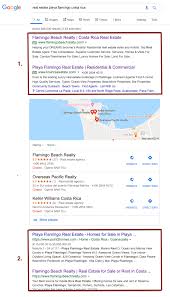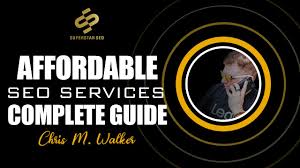PPC Campaigns: Unlocking the Power of Pay-Per-Click Advertising
In today’s digital age, businesses are constantly seeking effective ways to reach their target audience and drive traffic to their websites. One powerful tool that has gained immense popularity is pay-per-click (PPC) advertising. PPC campaigns offer businesses a targeted and measurable approach to online advertising, allowing them to maximize their return on investment (ROI). In this article, we will explore the ins and outs of PPC campaigns and how they can benefit your business.
What is a PPC campaign?
At its core, a PPC campaign is an online advertising method where advertisers pay a fee each time one of their ads is clicked. These ads are typically displayed on search engine results pages (SERPs) or other relevant websites. The most common platform for PPC campaigns is Google Ads, formerly known as Google AdWords.
How does it work?
PPC campaigns operate on an auction-based system. Advertisers bid on specific keywords relevant to their target audience. When a user searches for those keywords, the search engine displays relevant ads based on the bidding amount and quality score of the ad. The quality score takes into account factors like ad relevance, landing page experience, and expected click-through rate.
Benefits of PPC campaigns:
Targeted Reach: With PPC campaigns, you have precise control over who sees your ads. You can target specific demographics such as location, age group, interests, and more. This ensures that your ads reach the right people at the right time.
Immediate Results: Unlike organic search engine optimization (SEO), which takes time to yield results, PPC campaigns provide instant visibility. Once your campaign is set up and approved, your ads can start appearing immediately in search results.
Measurable ROI: One of the greatest advantages of PPC campaigns is that you can track every aspect of your campaign’s performance. From clicks and impressions to conversions and costs, you have access to detailed analytics that allow you to measure your ROI accurately.
Cost Control: With PPC campaigns, you have full control over your budget. You can set a daily or monthly spending limit, ensuring that you never exceed your allocated advertising budget.
Flexibility and Customization: PPC campaigns offer a high level of flexibility and customization. You can create multiple ad variations, test different headlines and call-to-actions, and refine your targeting based on real-time data.
Tips for successful PPC campaigns:
Keyword Research: Thorough keyword research is essential for a successful PPC campaign. Identify relevant keywords with high search volume and low competition to maximize your chances of reaching your target audience.
Compelling Ad Copy: Craft persuasive ad copy that grabs attention and entices users to click on your ads. Highlight unique selling points, use strong calls-to-action, and ensure that your ad aligns with the landing page it directs users to.
Landing Page Optimization: A well-optimized landing page is crucial for converting clicks into leads or sales. Ensure that your landing page offers a seamless user experience, provides relevant information, and has clear conversion paths.
Ongoing Monitoring and Optimization: Continuously monitor the performance of your PPC campaign and make necessary adjustments along the way. Test different ad variations, adjust bidding strategies, and optimize keywords based on performance data.
In conclusion, PPC campaigns are a powerful tool for businesses looking to increase their online visibility and drive targeted traffic to their websites. By leveraging the benefits of precise targeting, immediate results, measurable ROI, cost control, flexibility, and customization, businesses can unlock the full potential of pay-per-click advertising. With careful planning, strategic execution, and ongoing optimization efforts, PPC campaigns can deliver remarkable results for businesses across various industries.
Common Questions About PPC Campaigns: Answered
- What are PPC campaigns?
- Is Google Ads a PPC campaign?
- What are the key elements of a PPC campaign?
- What is an example of a PPC campaign?
What are PPC campaigns?
PPC campaigns, also known as pay-per-click campaigns, are a form of online advertising where advertisers pay a fee each time their ad is clicked. These campaigns typically operate on search engines or other relevant websites and are designed to drive targeted traffic to a specific webpage.
In a PPC campaign, advertisers bid on keywords or phrases that are relevant to their target audience. When a user performs a search using those keywords, the search engine displays relevant ads based on the bidding amount and quality score of the ad. The ads are usually displayed alongside organic search results or on other websites that have opted to display ads.
The key concept behind PPC campaigns is that advertisers only pay when someone actually clicks on their ad, hence the name “pay-per-click.” This model allows businesses to have more control over their advertising budget since they only pay for actual engagement with their ads.
PPC campaigns offer several benefits for businesses. They provide immediate visibility and can generate instant traffic to a website. Advertisers can also target specific demographics, locations, and interests, ensuring that their ads reach the right audience. Additionally, PPC campaigns provide detailed analytics and tracking capabilities, allowing businesses to measure their return on investment (ROI) accurately.
To run a successful PPC campaign, it is essential to conduct thorough keyword research to identify relevant keywords with high search volume and low competition. Ad copy should be compelling and aligned with the landing page it directs users to. Ongoing monitoring and optimization are crucial for adjusting bidding strategies, testing different ad variations, and optimizing keywords based on performance data.
Overall, PPC campaigns offer businesses an effective way to reach their target audience online while providing control over advertising costs and measurable results.
Is Google Ads a PPC campaign?
Yes, Google Ads is a popular platform for running PPC campaigns. It allows advertisers to create and display ads on Google’s search engine results pages (SERPs) and across its network of partner websites. Advertisers bid on keywords relevant to their target audience, and their ads are displayed when users search for those keywords. With Google Ads, businesses can set a budget and pay only when someone clicks on their ads, making it a pay-per-click (PPC) advertising model.
What are the key elements of a PPC campaign?
A successful PPC campaign comprises several key elements that work together to maximize its effectiveness. These elements include:
- Keyword Research: Thorough keyword research is crucial for identifying the right keywords to target in your campaign. Understanding the search terms your target audience uses will help you create relevant ads and increase the chances of attracting qualified clicks.
- Ad Copy: Compelling ad copy is essential for grabbing attention and enticing users to click on your ads. Your ad copy should be concise, persuasive, and highlight the unique selling points of your product or service. Including a strong call-to-action can also encourage users to take the desired action.
- Landing Page Optimization: Once users click on your ad, they should be directed to a well-optimized landing page that is relevant to their search intent. The landing page should provide valuable information, have clear conversion paths, and align with the message conveyed in the ad copy.
- Bidding Strategy: Determining an effective bidding strategy is crucial for managing costs and maximizing ROI. You can choose between manual bidding, where you set bids manually for each keyword, or automated bidding, where algorithms adjust bids based on predefined goals such as cost-per-acquisition or return on ad spend.
- Targeting Options: PPC campaigns offer various targeting options to reach your desired audience effectively. You can narrow down your audience based on factors such as location, demographics, interests, device type, and more. Utilizing these targeting options ensures that your ads are shown to people who are most likely to engage with them.
- Ad Extensions: Ad extensions provide additional information and opportunities for users to interact with your ads. They can include features like sitelink extensions (additional links within an ad), call extensions (phone numbers for direct calling), location extensions (displaying business addresses), and more. Ad extensions enhance the visibility and relevance of your ads.
- Conversion Tracking: Implementing conversion tracking allows you to measure the success of your PPC campaign accurately. By tracking conversions, such as purchases, sign-ups, or form submissions, you can determine which keywords and ads are driving the most valuable actions and optimize your campaign accordingly.
- Ongoing Monitoring and Optimization: Continuously monitoring the performance of your PPC campaign is crucial for making data-driven decisions and optimizing its effectiveness. Regularly review metrics such as click-through rates (CTR), conversion rates, cost per conversion, and return on ad spend (ROAS). Adjust your bidding strategies, ad copy, keywords, and targeting based on performance data to improve results over time.
By carefully considering and implementing these key elements in your PPC campaign strategy, you can increase its chances of success and achieve your advertising goals effectively.
What is an example of a PPC campaign?
Let’s consider an example of a PPC campaign for a fictional online shoe store called “Shoe Haven.”
Shoe Haven wants to increase its online visibility and drive more traffic to its website. They decide to launch a PPC campaign using Google Ads. Here’s how their campaign might look:
Goal: The primary goal of Shoe Haven’s PPC campaign is to increase online sales by driving targeted traffic to their website.
Keyword Research: Shoe Haven conducts extensive keyword research and identifies relevant keywords such as “buy shoes online,” “women’s running shoes,” and “discount designer shoes.”
Ad Creation: Shoe Haven creates compelling ads that include relevant keywords, enticing headlines, and strong calls-to-action. For example:
– Headline: Shop the Latest Collection of Women’s Running Shoes
– Description: Find the Perfect Pair for Your Active Lifestyle. Free Shipping on Orders Over $50!
Targeting: Shoe Haven sets specific targeting parameters for their ads, such as geographic location (e.g., United States), language (e.g., English), and demographics (e.g., age group 25-45).
Bidding Strategy: Shoe Haven determines their bidding strategy based on their budget and goals. They may choose to use automated bidding strategies like target CPA (Cost Per Acquisition) or manual bidding based on their desired cost-per-click (CPC).
Landing Page Optimization: Shoe Haven ensures that their landing page is optimized for conversions. They create a dedicated landing page that showcases the latest shoe collections, offers clear product information, includes easy-to-use navigation, and provides a seamless checkout process.
Monitoring and Optimization: Once the campaign is live, Shoe Haven closely monitors its performance using Google Ads’ analytics tools. They track metrics such as click-through rate (CTR), conversion rate, cost per conversion, and overall ROI.
Ongoing Adjustments: Based on the performance data, Shoe Haven makes necessary adjustments to optimize their campaign. They may refine their keyword list, test different ad variations, adjust bidding strategies, and make improvements to their landing page for better conversion rates.
By implementing a well-planned PPC campaign like this, Shoe Haven can effectively target potential customers who are actively searching for shoes online. The campaign helps increase visibility, drive relevant traffic to their website, and ultimately boost online sales.






